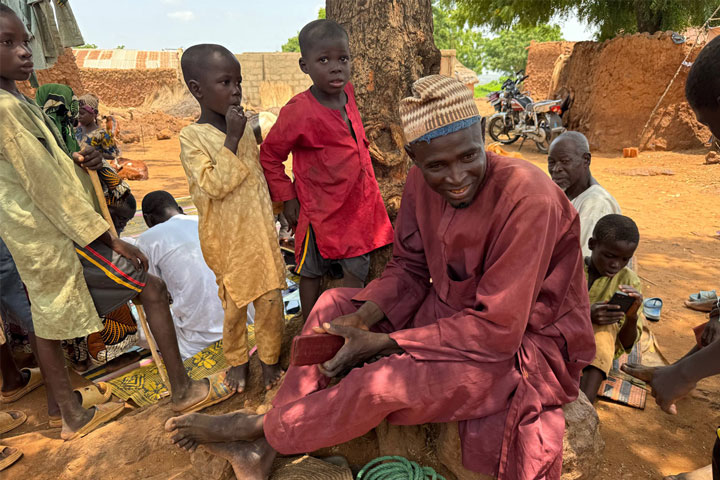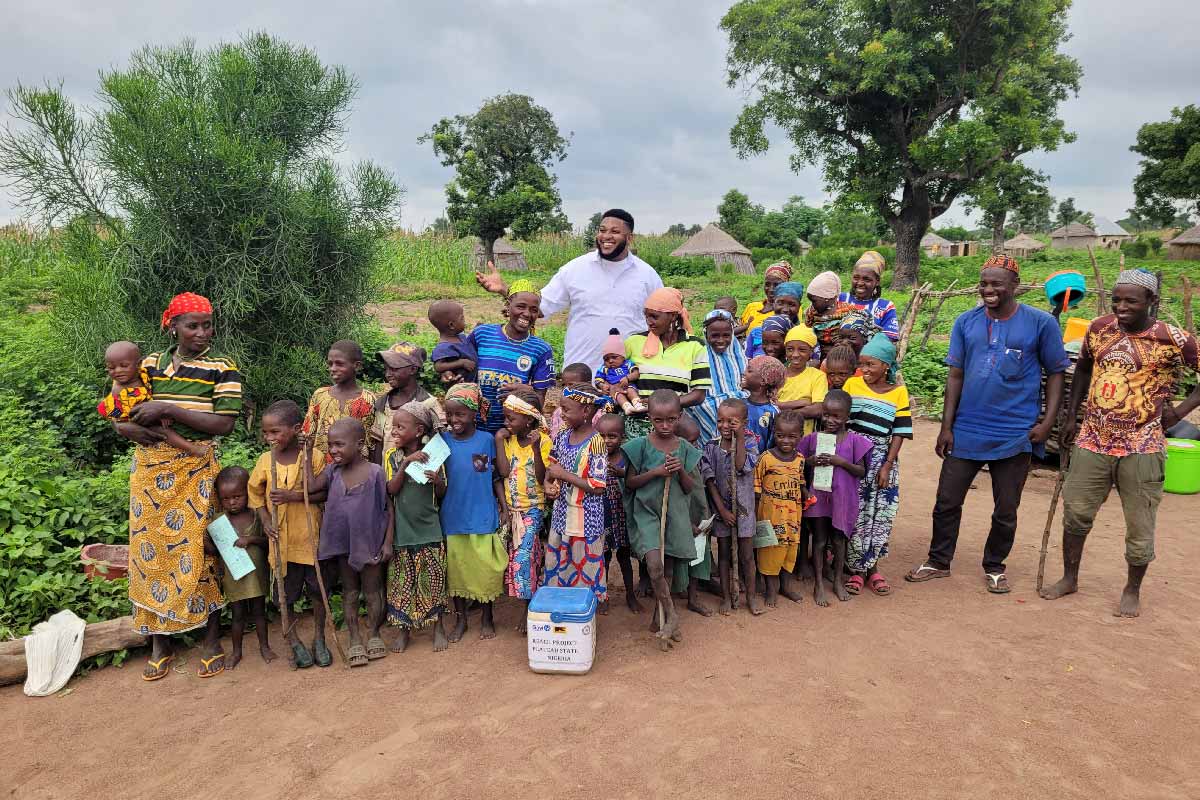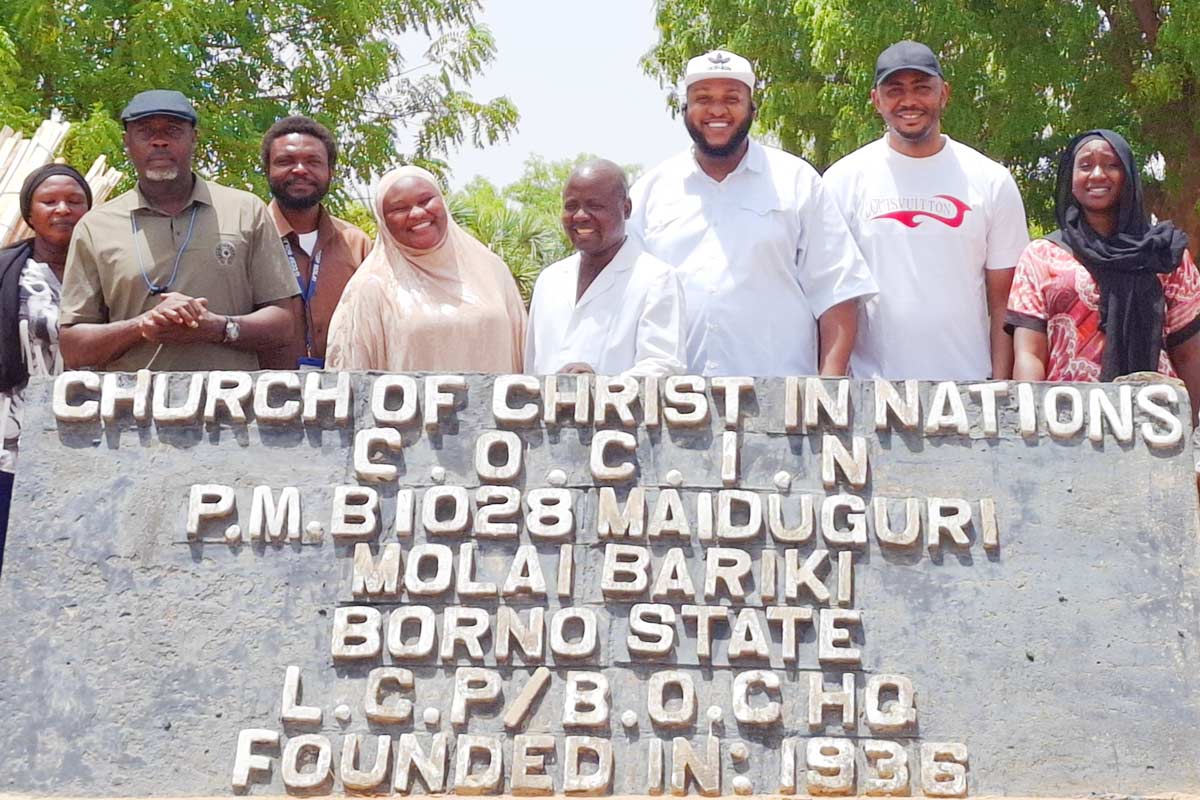The dam broke, the flood rolled in, and Kosollo stayed
In Maiduguri, northern Nigeria, one vaccinator knew that the deluge carried more than the risk of drowning – it brought deadly disease.
- 6 October 2025
- 4 min read
- by Christian Health Association of Nigeria (CHAN)
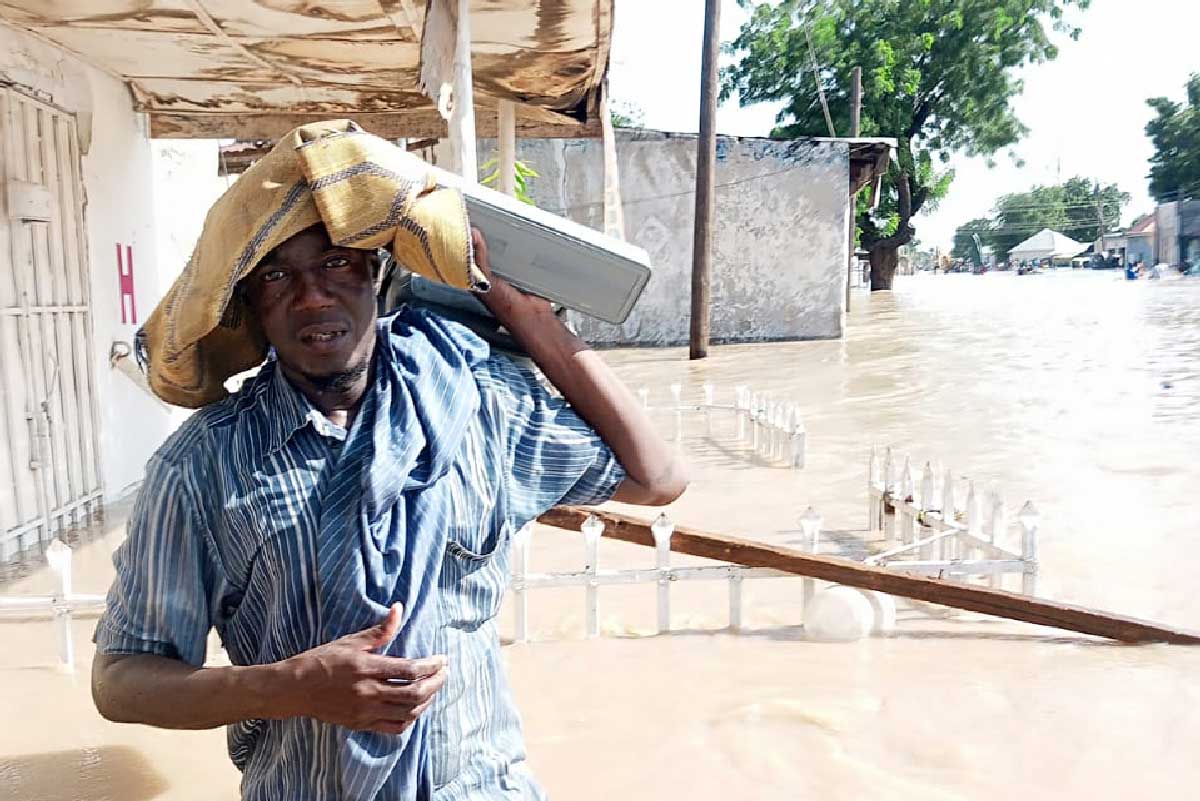
On 9 September 9 2024, after relentless days of heavy rain, the Alau Dam on the outskirts of Maiduguri city in Borno State collapsed.
A terrifying wall of water surged into Maiduguri, swallowing homes, markets, hospitals, and even the Sanda Kyarimi Park Zoo. Over 70% of the city vanished beneath floodwaters, resulting in the loss of over 150 lives and the displacement of more than 419,000. It was the worst flooding Maiduguri had seen in over 30 years.
The floodwaters overwhelmed the city’s fragile sewage system. That toxic slurry mixed in with decomposing human and animal bodies and hazardous waste from flooded factories and hospitals, and soon made disease a bigger threat than drowning.
Amid the destruction stood Kosollo Babashehu, a Community Health Extension Worker with over ten years’ experience and a fierce commitment to his community’s health. Babashehu is part of the Christian Health Association of Nigeria (CHAN), working tirelessly to bring vaccines to children in crisis settings across Nigeria.
Run for your life
That night, as the dam breached and sent water rushing through Maiduguri, urgent calls blared over loudspeakers. The message sounded: “Flood is coming, everybody run for your life!”
Babashehu woke up. With no time to gather belongings, he grabbed his wife and three children, and stepped out into darkness. The heavy rain and rising water made each step treacherous, but he pressed on, walking for over an hour to reach safety in the community of 777 Estate, which sat at a higher elevation.
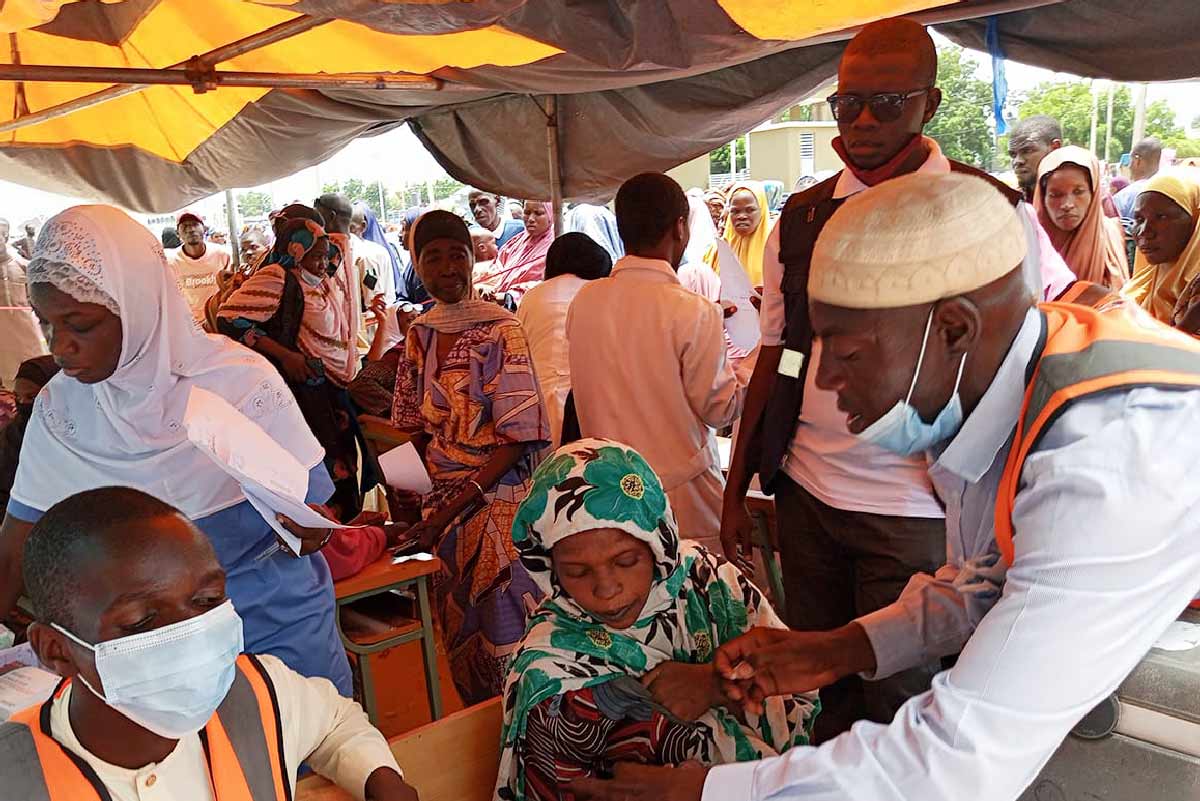
Behind them, the floodwaters swallowed their home. Living in Maiduguri amid ongoing insecurity from Organized Armed Groups (OAGs), Babashehu understood what losing shelter truly meant.
But he also knew what losing health could mean for his people. Children under five were especially vulnerable. Diseases like cholera, tetanus, diphtheria and rotavirus threatened to spread like wildfire in the flood’s aftermath.
As floodwaters overwhelmed Maiduguri, spreading disease and death, Babashehu knew the real battle was only beginning: protecting his community’s health amid the crisis.
Have you read?
Reporting for duty
Despite his personal loss and the weight of the challenges ahead, Babashehu refused to step back. He joined CHAN’s vaccination team in a temporary displaced persons’ camp at Mairi, offering life-saving vaccines where hope was desperately needed.
For over two years, he has been part of the CHAN vaccination team – a group of frontliners with plenty of experience of adversity.
You could say that CHAN – which is implementing the Gavi-funded and International Rescue Committee-led Reaching Every Child In Humanitarian Settings (REACH) vaccination project in Nigeria – makes resilience its specialism.
For one gruelling week, Babashehu worked tirelessly in the camps. His steady hands vaccinated over 1,000 children, providing a shield of protection against deadly diseases.
“My motivation is simple. Even when my house collapsed and everything was gone, I knew my work could save lives. When I vaccinate these children, I see hope. I see a future free from disease for my community,” Babashehu said, quietly.
A year on, that hasn’t changed. “The challenges are still about the immunisations,” he says. Among the displaced, defaulters are plenty, and there are communities in the vicinity that are still rarely visited by outreach teams. But he says the rest of the CHAN team stands firmly behind him: “ In terms of transportation, in terms of logistics [...] they rapidly respond to our problems, that’s why we are so motivated.”
How is Gavi supporting CHAN?
Gavi’s humanitarian partnerships programme, also known as ZIP, funds partner organisations with specific expertise in navigating humanitarian crisis. The aim? To deliver all scheduled vaccine doses to children from birth to age five in communities where conflict impedes the access of government-provided health services.
CHAN, operating in troubled parts of northern Nigeria, is one such specialist organisation, and is operating as part of the IRC-led, ZIP-funded, REACH consortium.
As of July 2025, ZIP had provided more than 2.1 million children growing up in crisis zones with their very first vaccine, and 1 million children with their last recommended dose, leaving them fully immunised.
